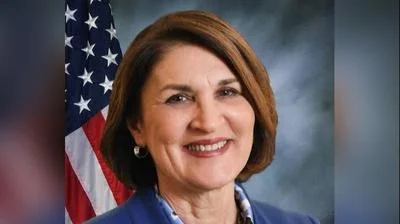State Representative Wayne Rosenthal (IL) | Representative Wayne A Rosenthal (R) 108th District
State Representative Wayne Rosenthal (IL) | Representative Wayne A Rosenthal (R) 108th District
In the early hours of May 29, 2024, Democrats in the Illinois General Assembly approved a $53.1 billion spending plan for Fiscal Year 2025 without Republican support. The budget marks an increase of $2.6 billion from the previous year and includes provisions for pay raises for politicians and $1 billion allocated to non-citizens. Additionally, Democrats voted to implement $1 billion in tax hikes to fund this increased expenditure.
Over the past four years, the Democrat-controlled General Assembly has consistently expanded state spending under Governor Pritzker's administration. Since FY2020, state expenditures have risen by more than $13 billion, escalating from nearly $40 billion to over $53 billion this year.
House Republican lawmakers have expressed strong opposition to the FY2025 budget:
Deputy Republican Leader & Chief Budgeteer Norine Hammond (R-Macomb) stated, “In the early morning hours, Illinois Democrats passed the largest budget in state history. In just six years under Governor Pritzker, State spending has increased by more than $13 billion, a 32 percent increase. Illinois working families and seniors cannot afford to pay for all this massive spending, especially at a time when so many are struggling with high inflation, high interest rates, and persistently high unemployment.”
Assistant Republican Leader & Budgeteer Amy Elik (R-Alton) commented, “Hard-working Illinoisans are struggling to afford basic needs amidst high inflation and higher cost of living increases. While Democrats prioritized raising taxes, spending on new programs, and subsidizing failed open-border immigration policies, our state’s most vulnerable citizens have been shortchanged. I’m greatly concerned that the excessive spending this year and in the future can only be paid for by more and more tax hikes in the future.”
Rep. Mike Coffey (R-Springfield) added his concerns: “This is the largest partisan budget in state history that fails to address the dire needs of Illinois residents and businesses. This is a sobering moment for our state as we continue to spend millions on non-citizens at the expense of taxpayers while families are struggling to make ends meet. Illinois could be a prosperous state, but our government is prioritizing the needs of non-citizens rather than the needs of hard-working taxpayers.”
Rep. Jed Davis (R-Yorkville) remarked on legislative balance: “This outcome is the sad reality of an out-of-balance state legislature operating on the will of one party. We must bring balance back to Illinois government which inevitably brings balance back to our state’s budget.”
Assistant Republican Leader Jackie Haas (R-Kankakee) voiced her frustration: “I am deeply frustrated by the lack of bipartisan cooperation on this budget yet again. Republican lawmakers were once again shut out from budget discussions despite our ongoing offers to be a part of the process... Our state budget is for everyone, and all constituents deserve representation when it’s being crafted regardless of their zip code.”
Assistant Republican Leader Jeff Keicher (R-Sycamore) warned about financial sustainability: “Since before the Governor’s budget proposal in 2023 my Republican colleagues and I have been warning that our state would face a deficit as federal COVID relief funds ran out... Well this budget lays bare that problem as Democrats are ramming more than a billion dollars in tax increases... that will only stand to drive more Illinois families and job creators out of our state.”
Rep. Dan Ugaste (R-Geneva) emphasized issues with taxation: “One of the biggest problems we have in Illinois is over-taxation... This budget once again calls for huge tax increases... crafted by Democrats with no Republican involvement does not address... residents’ needs but doubles down on bad policies.”
Assistant Republican Leader Patrick Windhorst (R-Metropolis) expressed concern over priorities: ”I am concerned with how Democrats’ spending plan prioritizes appropriations for non-citizens... while increasing taxes on individuals working families businesses... I would have preferred a budget that prioritized tax cuts during this incredibly difficult financial time for taxpayers.”
###






 Alerts Sign-up
Alerts Sign-up